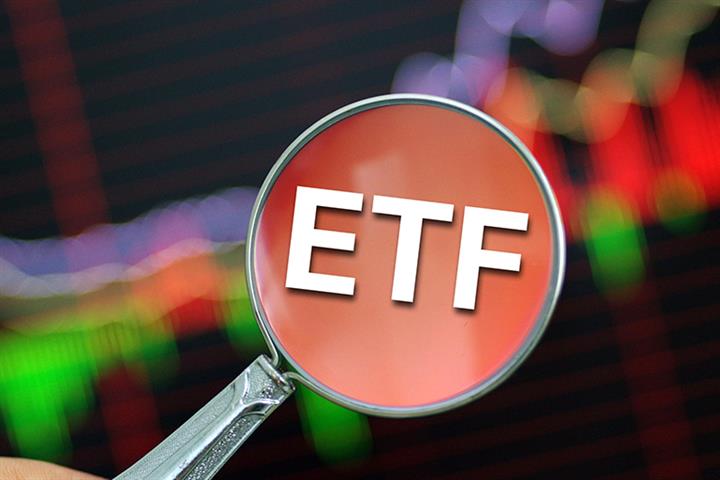 Foreigners to Bring USD130 Billion to Chinese ETFs Via Hong Kong Connection in 10 Years, Goldman Sachs Says
Foreigners to Bring USD130 Billion to Chinese ETFs Via Hong Kong Connection in 10 Years, Goldman Sachs Says(Yicai Global) July 12 -- Foreign investors are predicted to pour more funds into Chinese equities in the long term via the recently opened ETF Connect, according to Goldman Sachs.
Considering the small size of the first inclusions, ETF Connect plays a moderate role in capital flows in the short term, according to the New York-based investment bank. But it is expected to bring USD130 billion of northbound funds in the next 10 years as the coverage expands, it added. Northbound trading refers to buying and selling of mainland-listed equities via Hong Kong.
The scale of southbound trading should reach USD50 billion in a decade, according to the same financial institution. Southbound trades involve Hong Kong-listed securities traded by mainland-based investors.
The exchange-traded fund connectivity mechanism, which links up bourses in China's mainland and the Hong Kong Special Administrative Region, was opened on July 4. The first batch included 83 mainland-listed ETFs and four Hong Kong-listed ones.
The first day was busy. The initial batch of 83 mainland-listed ETFs recorded CNY23.1 billion (USD3.4 billion) in transactions on the first trading day, according to bourse data.
More locals could discover the ease of ETFs. Passive investing is increasingly popular among global investors, but in China, most retail investors prefer to pick stocks themselves, Goldman Sachs said. ETFs that track certain indexes or sectors account for only about 2 percent of the mainland market.
If passive investing grows to the same level as active funds, namely making up 7 percent of the total market value of A-shares, passive funds should reach USD800 billion, based on the investment bank's calculations.
Chinese equities have been popular lately. Last month, net investments of US-listed ETFs that target Chinese companies reached USD4 billion, according to American private equity giant BlackRock. Meanwhile, the corresponding volume of China-focused ETFs listed in Europe, the Middle East, and Africa was USD1.8 billion. The total sum refreshed a January record of USD4.3 billion.
Shanghai's SSE Composite Index, which tracks the daily performance of shares listed on one of the mainland's two bourses, rose nearly 6.7 percent in June as China made some strides in controlling and getting over the Covid-19 pandemic. Meanwhile, the Dow Jones Industrial Average fell by 6.7 percent due to the Federal Reserve’s tightening monetary policy.
But this month has been less impressive. The SSE Composite Index fell 1 percent to 3,281.47 today, following a 1.3 percent decline yesterday. After watching their shares soar, investors have chosen to cash out and they have become increasingly aware of the risks as the domestic pandemic is once again showing some signs of returning, China International Fund Management pointed out to Yicai Global.
Editors: Dou Shicong, Emmi Laine, Xiao Yi